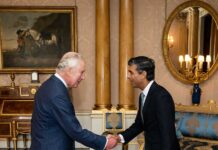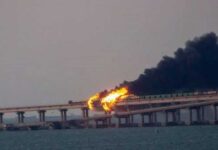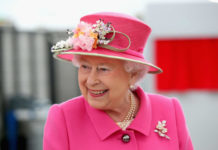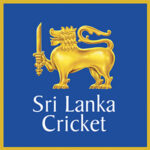BBC News : Journalists Maria Ressa and Dmitry Muratov have won the Nobel Peace Prize for their fights to defend freedom of expression in the Philippines and Russia.
The Nobel committee called the pair “representatives of all journalists who stand up for this ideal”.
The editors are known for hard-hitting investigations that have angered their countries’ rulers, and both have faced significant threats.
They were chosen out of 329 candidates.
Ms Ressa, who co-founded the news site Rappler, was commended for using freedom of expression to “expose abuse of power, use of violence and growing authoritarianism in her native country, the Philippines”.
The award-winning journalist was convicted last year of libel in a case seen as a test of the country’s press freedom.
She said her win showed that “nothing is possible without facts… a world without facts means a world without truth and trust”.
In a statement, Rappler said it was “honoured and astounded” that its chief executive had been given the prize.
“It could not have come at a better time – a time when journalists and the truth are being attacked and undermined,” it said.
The Nobel committee said Mr Muratov, the co-founder and editor of independent newspaper Novaya Gazeta, had for decades defended freedom of speech in Russia under increasingly challenging conditions.
Several Novaya Gazeta reporters have been murdered because of their work, according to the Committee to Protect Journalists.
He called the prize “retribution for Russian journalism which is being repressed now”.
The editor was congratulated by Kremlin spokesman, Dmitry Peskov, who said: “He persistently works in accordance with his own ideals, he is devoted to them, he is talented, he is brave.”
The winners of the prestigious prize, worth 10m Swedish krona (£836,000; $1.1m), were announced at the Norwegian Nobel Institute in Oslo.
The Nobel Peace Prize is intended to honour an individual or organisation that has “done the most or the best work for fraternity between nations”.
“Free, independent and fact-based journalism serves to protect against abuse of power, lies and war propaganda,” the committee said in a statement.
“Without freedom of expression and freedom of the press, it will be difficult to successfully promote fraternity between nations, disarmament and a better world order to succeed in our time,” it added.
What do we know about the winners?
Maria Ressa co-founded the news site Rappler in 2012. The site now has 4.5 million followers on Facebook, and has become known for its intelligent analysis and dogged investigations.
It is one of the few Philippine media organisations to be openly critical of President Rodrigo Duterte and his policies.
Rappler has published extensively on the populist president’s deadly war on drugs, as well as taking a critical look at issues of misogyny, human rights violations and corruption. Ms Ressa has personally reported on the spread of government propaganda on social media.
Ms Ressa has faced numerous legal cases, which she says are politically motivated. The government has maintained their legitimacy.
Her cyber-libel conviction last year could carry a sentence of up to six years in prison.
Local journalist Ellen Tordesillas told the BBC last year that Ms Ressa was “admired as one of those who stood up to Duterte”.
Dmitry Muratov co-founded Novaya Gazeta in 1993 and has since worked as its editor. Novaya Gazeta is one of the few remaining newspapers in Russia to be highly critical of the ruling elite, particularly President Vladimir Putin.
Published three times a week, it regularly runs investigations into alleged corruption and other malpractice in ruling circles, and highlights the plight of people it considers victims of official abuse.
The newspaper has been subjected to threats and harassment, including over its reporting of human rights abuses in Chechnya.
The award came a day after the 15th anniversary of the killing of Anna Politkovskaya – one of the six murdered Novaya Gazeta reporters.
Courtesy: bbc.com/news











